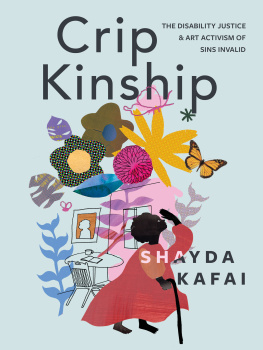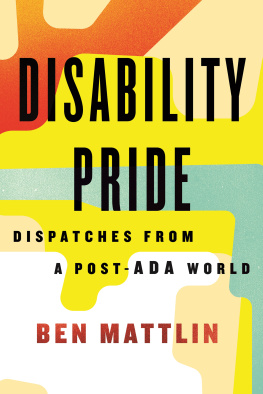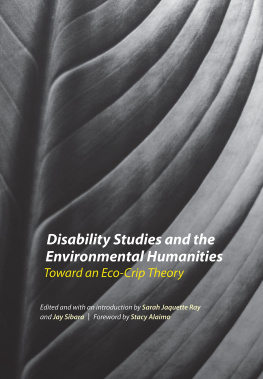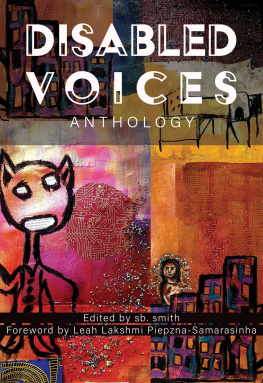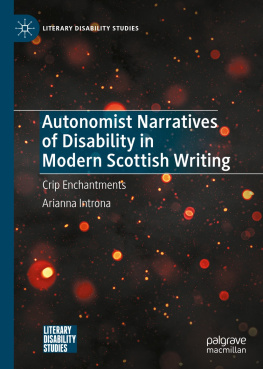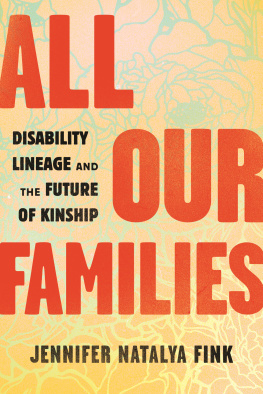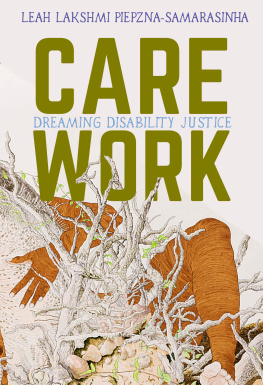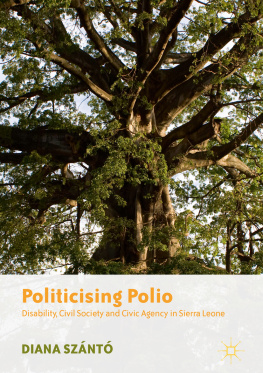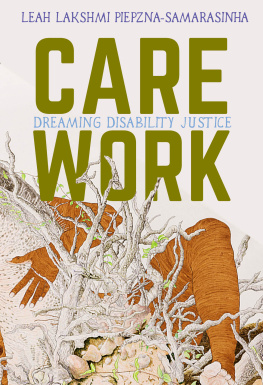Table of Contents
Page List
List of Figures
Guide

Crip Kinship
Crip Kinship
The Disability Justice & Art Activism of Sins Invalid
shayda kafai

CRIP KINSHIP
Copyright 2021 by Shayda Kafai
All rights reserved. No part of this book may be reproduced in any part by any meansgraphic, electronic, or mechanicalwithout the prior written permission of the publisher, except by a reviewer, who may use brief excerpts in a review, or in the case of photocopying in Canada, a license from Access Copyright.
ARSENAL PULP PRESS
Suite 202 211 East Georgia St.
Vancouver, BC V6A 1Z6
Canada
arsenalpulp.com
Arsenal Pulp Press acknowledges the xmkym (Musqueam), Swxw7mesh (Squamish), and slilwta (Tsleil-Waututh) Nations, custodians of the traditional, ancestral, and unceded territories where our office is located. We pay respect to their histories, traditions, and continuous living cultures and commit to accountability, respectful relations, and friendship.
Cover and interior design by Jazmin Welch
Cover art by Kah Yangni
Copy edited by Doretta Lau
Proofread by Catharine Chen
Printed and bound in Canada
Library and Archives Canada Cataloguing in Publication:
Title: Crip kinship : the disability justice & art activism of Sins Invalid / Shayda Kafai.
Names: Kafai, Shayda, author.
Identifiers: Canadiana (print) 20210212411 | Canadiana (ebook) 20210212500 | ISBN 9781551528649 (softcover) | ISBN 9781551528656 (HTML)
Subjects: LCSH: Sins Invalid (Organization) | LCSH: Artists with disabilitiesCaliforniaSan Francisco. | LCSH: Artists with disabilitiesPolitical activityCaliforniaSan Francisco. | LCSH: Political artCaliforniaSan Francisco
Classification: LCC N8355 .K34 2021 | DDC 704/.087dc23
To our disabled, queer of color doulas and ancestors.
To Amy for leading me home.
Contents
foreword
I was fortunate to grow up in the San Francisco Bay Area at a time when there was a lot of emerging radical art there. As a young, queer radical with a hope for sex around every corner, I gravitated toward the many underground art scenes, queer cultural spaces, and illicit drugs spots that were available and accessible to me in the early 1980s.
Despite going year after year to queer film festivals and late-night meetings for Third World peoples (shout out to Mandela Arts!), I never, ever found a space where brown, disabled, politically sharp, and snarky queers were centered or even represented. It was a nexus of identities, politics, and aesthetics that didnt exist.
In 2005, when Leroy Moore, Amanda Coslor, Todd Herman, and I started discussing the project that became Sins Invalid, it was going to be a one-time performance. I knew that disabled people of color needed to see ourselves mirrored. I knew that I needed to see myselfmy own gender non-conforming crip bodyreflected back to me. What I didnt realize was how much I and other people needed to see the multiplicity of our non-normative, non-able bodyminds until that first, then second, then third show happened.
Back in 2005 I did not imagine the future that we would create together. It amazes me that we now have third-generation disability justice folks. I remember the first time I met somebody from the disability community who didnt come from a Disability Rights framework, but from Disability Justice. And I remember being humbled and amazed and tickled and delighted to realize that there were people who were coming up in this framework.
I did not expect Sins Invalid (Sins, to those close to us) to blossom the way it did, because I didnt fully grasp how novel one of Sins central messages was for so many people. Id thought it a given that every human is beautiful and powerful; I thought this was more than evident! It shouldnt be such a far-out concept that all humans are valuable and that the world should be organized around our collective and individual value. And that means including people with disabilities, including Black, brown, Indigenous, queer, gender non-conforming, and trans crips.
Please dont get it twistedmy childhood was far from picture perfect. I also have a sharp critique of capitalisms ongoing reduction of life to simple components of an economic equation in which a disabled body is rendered useless. But in the hours and years of healing work that I struggled through, I clung tightly to the spiritual tenet that all beings are sacred, which, after years, I finally internalized to include me.
When I think about the current moment, it appears that ableism is doing better than ever. As capitalism continues to define work, ableism becomes more and more entrenched in every generation. During the pandemic, eugenic practices increased and no alarms were sounded. Down the street from where I live, hospitals were denying disabled people access to ventilators so that non-disabled people could have them.
And at the same time, the pandemic has set the stage for us to experience a mass disabling.
Many people have been given the opportunity to look at their work and question whether its worth risking their lives, particularly at a J.O.B. that exploits them and extracts from them. Of course, within cis-heteropatriarchal capitalism, others were forced to work. As people with disabilities, we have always had to ask ourselves, is this job worth the labor we have to put into it?
Crip life invites us into fierce creativity. Because the world continues to treat us as worthless, creating new worlds is a matter of survival for us. Dreaming is a matter of survival. This is part of the power of Sins; we dream new crip worlds together. We dream without shame. We dream out loud and in public.
Ive always had a relationship with all the living world, including minerals and rocks. Growing up near the ocean, across the street from Golden Gate Park, meant waking up to the smell of salt in the air, the sounds of sea lions barking, and touching plants and pine trees every day. Now, at fifty-four (thats at least seventy in crip years) I find myself deeply connected again to the non-human universe, inspired by the beauty of all that is not human.
I used to have expectations for humans that I dont anymore. Its sobering to experience a pandemic and see how difficult change is for people. Its sobering to see how much pain the ocean can be in and how few fucks humans can give. Its painfully sobering. Ive had to do some serious expectation management of our species. You can only get heartbroken so many times before you recognize the nature of the beast.
But like all things, this beast is not all good or all bad. I deeply love my partner and my community of friends and am myself deeply loved. Ive been broken in relationships, and Ive been saved in relationships. Sins Invalid reflects my learnings up until now, and Im grateful to Shayda Kafai for being in community and in integrity while creating this book. Im grateful to each reader who wants to explore the universe of Sins Invalid.
In gratitude,
Patty Berne, Berkeley, California
supported by Cory Silverberg, Toronto, 2021
introduction
You are not too sick, too disabled, too sad, too crazy, too ugly, too fat, or too weird. We live in a white supremacist, patriarchal, ableist culture that values oppressive standards for the sake of centralizing power and making profit. Our ostracism is a result of this system that demonizes difference and not a reflection of your worth, value, ability to be loved, etc. You are not the problem. You are perfect.

